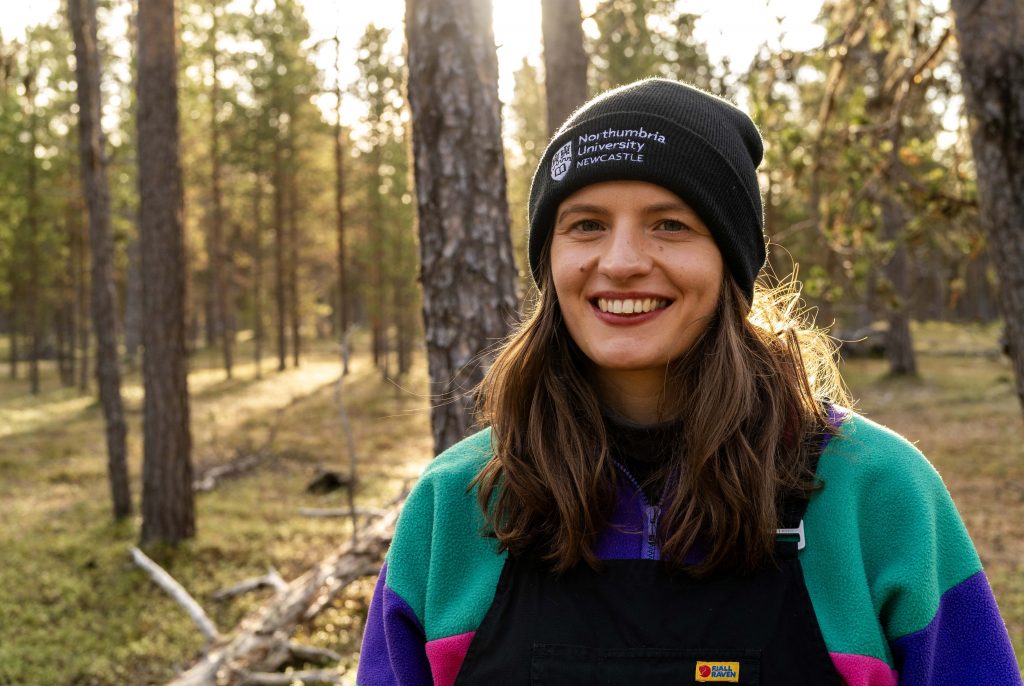
Louise’s main focus is supporting the co-development of community-based environmental monitoring programs in the Arctic. As part of the CINUK (Canada-Inuit-Nunangat-UK-Arctic Research Program) program, Louise helped to support the co-development of community-based monitoring programs in Tuktoyaktuk, Inuvialuit Settlement Region, Canada. This work then expanded to supporting programs regionally and then to Kalaallit Nunaat (Greenland). Louise’s topics of research are wide ranging which has included supporting programs that monitor the impacts of extreme weather events, coastal erosion, river inputs and legacy infrastructure on the marine environment. Through the Nunatsiavut Rivers Project, Louise will continue to advance collaborative partnerships and develop appropriate methods to promote resilient river monitoring approaches that can be sustained.
As a fellow with the International Arctic Science Committee, Louise helped to guide Terrestrial and Atmospheric Working Group funded projects to centre community research priorities in research design while gaining experience working in the science-policy space. Louise participated in the 4th International Conference on Arctic Research Planning (ICARPIV) process as secretary for research Priority Team 5: Co-production and Indigenous-led methodologies. As a past President of the UK Polar Network Louise continues to work towards making Polar science a more inclusive and equitable space for current and future Early Career Polar Scientists to work in.
Contact Louise at louisem@mun.ca
Past education:
PhD in Earth Science and Environmental Science
Joint award between Newcastle and Northumbria University, United Kingdom | Oct 2021 – Mar 2025
Master of Science and Technology with focus on Environmental Science
The University of Utah, United States | Aug 2017 – Apr 2019
BSc (Hons) in Ecological and Environmental Sciences
The University of Edinburgh, United Kingdom | Sep 2013 – Jun 2017
Publications:
Gartler, S., Scheer, J., Meyer, A., Abass, K., Bartsch, A., Doloisio, N., Farlardeau, J., Hugelius, G., Irrgang, A., Haukur Ingimundarson, J., Jungsberg, L., Lantuit, H., Larsen, J.N., Lodi, R., Martin, V.S., Mercer, L. et al. (2025). A transdisciplinary, comparative analysis reveals key risks from Arctic permafrost thaw. Communications Earth & Environment, 6, 21. 10.1038/s43247-024-01883-w
Mercer, L., Pokiak, D.L., Whalen, D., Lim, M., and Mann, P.J. (2024). Empowering Indigenous-led contaminant monitoring through collaborative partnerships and two-way capacity sharing. Arctic Science. https://doi.org/10.1139/as-2023-0079
Blaskey, D., Mercer, L., van Crimpen, F., and Devoie, É. (2024). Perspectives on funding structures, cross-cultural collaboration and institutional support needed to support the next generation of convergence climate scientists. PLOS Climate, 3(1). https://doi.org/10.1371/journal.pclm.0000330
Mercer, L., Whalen, D., Lim, M., Cockney, K., Cormier, S., Irish, C., and Mann, P.J. (2023). Towards more inclusive and solution orientated community-based environmental monitoring. Environmental Research Letters, 18(6). https://doi.org/10.1088/1748-9326/accfb0
Mercer, L., Whalen, D., Pokiak, D.L., Lim, M., and Mann, P.J. (2023). Ensuring continuity and impact in Arctic monitoring: a solution-orientated model for community-based environmental research. Environmental Research: Ecology. https://doi.org/10.1088/2752-664X/ad0241
Mercer, L. and Ovitz, K. (2023). Shifting from capacity building to capacity sharing in Arctic research: Considering transformative shifts in collaborative research at the ArcticNet Annual Scientific Meeting. The Polar Journal, 13(1), 172–176. https://doi.org/10.1080/2154896X.2023.2205248